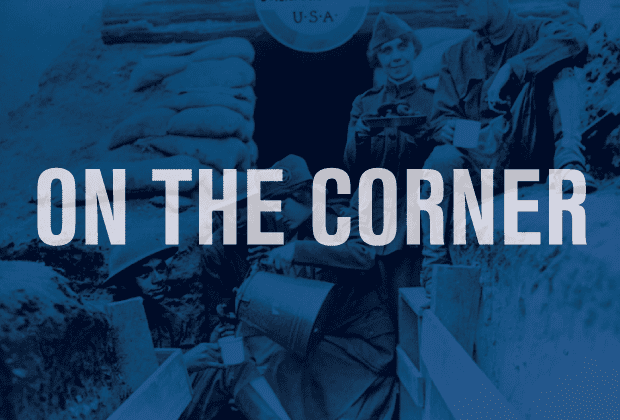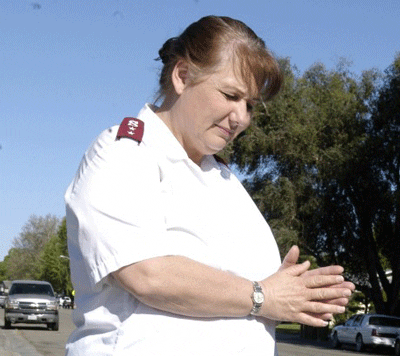By Bob Docter –
People toss this concept around considerably. Often, they do so without sufficient definition as to its meaning. Meaning requires an additional word. What do you want to sustain? Without that context, the word simply explains that you want to keep on, maintain, endure, strengthen or prolong the existence of something.
The Army, it seems to me, seeks to sustain life itself for the indigent poor, to strengthen the courage of the downtrodden, to encourage the forgotten, to suffer with the wounded, to grieve with those in pain, to empathize with the homeless, the strangers. We seek to facilitate the resolution of many social difficulties relative to essentials.
Our business, however, is not simply to change the feeling tone of the environment, although it is an essential byproduct, we want to change life situations and life itself for those in need. In order to achieve this, we need to make our plans public. We need to work with common allies in modifying the environment in relation to renewable and sustainable resources. Our task in this process must focus on the people involved. They are part of the environment, and everything that surrounds them makes up the environment. Many of them live in poverty, want to work but find themselves untrained for most jobs. Some have language difficulties, others have no salable skills. Their self-image has become pummeled, self-respect seriously tarnished, debt seems insurmountable.
Of course, it takes money to sustain a program. We must have additional resources if we are to take on additional responsibilities. There never seems to be enough funding to assist in the support of broken families, or to be able to hire counselors to help put the pieces back together. I hypothesize that most people haven’t got the slightest idea about the level of our commitment to our role in the elimination of poverty.
We need to experiment with different approaches to fundraising, possibly becoming slightly more entrepreneurial. I’ve heard that the Lutheran Church owns many enterprises that generate resources. Even if profits were slender, it would provide us with jobs for adult rehabilitation center (ARC) graduates plus the unemployed in the community (sounds like thrift stores operating in conjunction with the ARC programs). It might need to be a separate corporation or not, but the jobs available within the entrepreneurial design—say buying franchises or the like, would assist in dealing with the economic challenges of sustaining the program. We would need to hire the right managers.
We’re not trying to sustain very real problems like poverty, hatred, judgmentalism, or disdain. We’re trying the help those trapped. The problems we face begin with the success of our sustainability over generations. That success presents wonderful challenges. Some of these wonderful soldiers have grown to maturity (and then some) in a local corps, and many of them perceive the corps as the Army. It has never been just the corps. The corps and the social service programs are a unitary tandem. If the corps officer is alert, he or she knows both build the other. Therefore, they need equal emphasis.
One the things that sustains the Army over time is our unique ability to generate within our membership feelings of love and commitment. Soldiers in large corps willingly volunteer as much as they are asked. No job is too much. I used to worry about whether this characteristic was part of only my generation. I worry no more. The older youth seem to have caught the spirit and seem committed as much or more. It tells me the status of the corps will live and grow. Talk about sustainability—there’s a mysterious something in the wind that keeps us alive and helps us to grow as well.
I hope you sense that same spirit in your corps. If not do something. Ask someone to help with a task, praise the product, then, have something else for them in the near future. That’s sustainability.














